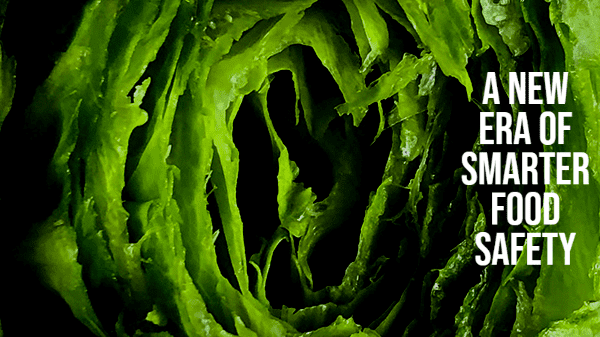
Frank Yiannas, deputy commissioner for food policy and response at FDA, who helped oversee the New Era of Smarter Food Safety, says 2020 has been a true test.
“The food system is pretty impressive,” he said during a session of the virtual United Fresh Produce Association’s BB #:145458 Washington Conference, Sept. 24.
“We’re living in the biggest challenge the food system has faced in 100 years and I feel we’ve passed the test.”
Yiannas said while there have been food safety outbreaks, the food supply didn’t run out during this year of COVID-19 and economic disruption.
He credited public-private cooperation as being a huge factor in weathering the storm.

“The FDA played an important role in telling people that food isn’t a factor in transmitting COVID-19,” Yiannas said, noting there hasn’t been one infection tied to transmission through food.
He said he’s optimistic that the pandemic has changed the ways government and businesses operate with one another in regard to food safety.
“I feel like we’re working with a greater level of trust because we were in the fog of battle,” he said.
Yiannas said going forward he’d like to see this more frequent communication and more transparent communication between FDA and food companies.
“I’m hopeful this trust carries forward,” said Jennifer McEntire, vice president food safety and technology for United Fresh.
She said one example of public-private partnership that she worked on was improving the food safety system in the papaya industry.
Last decade saw eight outbreaks of Salmonella linked to papayas, which prompted FDA call for an industry examination of food safety practices.
Yiannas said all those outbreaks occurred during the summer, and with summer passing to fall this week, he’s hopeful that the changes are working.
Another example, he said, was in traceability. Yiannas said the consequences of the 2005 spinach outbreak and 2018 romaine outbreak were not that different. Both were widespread and difficult to isolate the cause.
But traceability improved in the past few years such that the 2019 E. coli outbreak linked to a packaged salad was isolated to one company’s brand, not the whole lettuce industry.
Likewise, Yiannas said, this year’s onion Salmonella outbreak was isolated to one company and didn’t affect the onion industry as a whole.
The New Era program officially launched in July with the goal of bending the curve of foodborne illness in the U.S. by reducing the number of illnesses.
You can read more about it here.
Frank Yiannas, deputy commissioner for food policy and response at FDA, who helped oversee the New Era of Smarter Food Safety, says 2020 has been a true test.
“The food system is pretty impressive,” he said during a session of the virtual United Fresh Produce Association’s BB #:145458 Washington Conference, Sept. 24.
“We’re living in the biggest challenge the food system has faced in 100 years and I feel we’ve passed the test.”
Yiannas said while there have been food safety outbreaks, the food supply didn’t run out during this year of COVID-19 and economic disruption.
He credited public-private cooperation as being a huge factor in weathering the storm.

“The FDA played an important role in telling people that food isn’t a factor in transmitting COVID-19,” Yiannas said, noting there hasn’t been one infection tied to transmission through food.
He said he’s optimistic that the pandemic has changed the ways government and businesses operate with one another in regard to food safety.
“I feel like we’re working with a greater level of trust because we were in the fog of battle,” he said.
Yiannas said going forward he’d like to see this more frequent communication and more transparent communication between FDA and food companies.
“I’m hopeful this trust carries forward,” said Jennifer McEntire, vice president food safety and technology for United Fresh.
She said one example of public-private partnership that she worked on was improving the food safety system in the papaya industry.
Last decade saw eight outbreaks of Salmonella linked to papayas, which prompted FDA call for an industry examination of food safety practices.
Yiannas said all those outbreaks occurred during the summer, and with summer passing to fall this week, he’s hopeful that the changes are working.
Another example, he said, was in traceability. Yiannas said the consequences of the 2005 spinach outbreak and 2018 romaine outbreak were not that different. Both were widespread and difficult to isolate the cause.
But traceability improved in the past few years such that the 2019 E. coli outbreak linked to a packaged salad was isolated to one company’s brand, not the whole lettuce industry.
Likewise, Yiannas said, this year’s onion Salmonella outbreak was isolated to one company and didn’t affect the onion industry as a whole.
The New Era program officially launched in July with the goal of bending the curve of foodborne illness in the U.S. by reducing the number of illnesses.
You can read more about it here.
Greg Johnson is Director of Media Development for Blue Book Services




